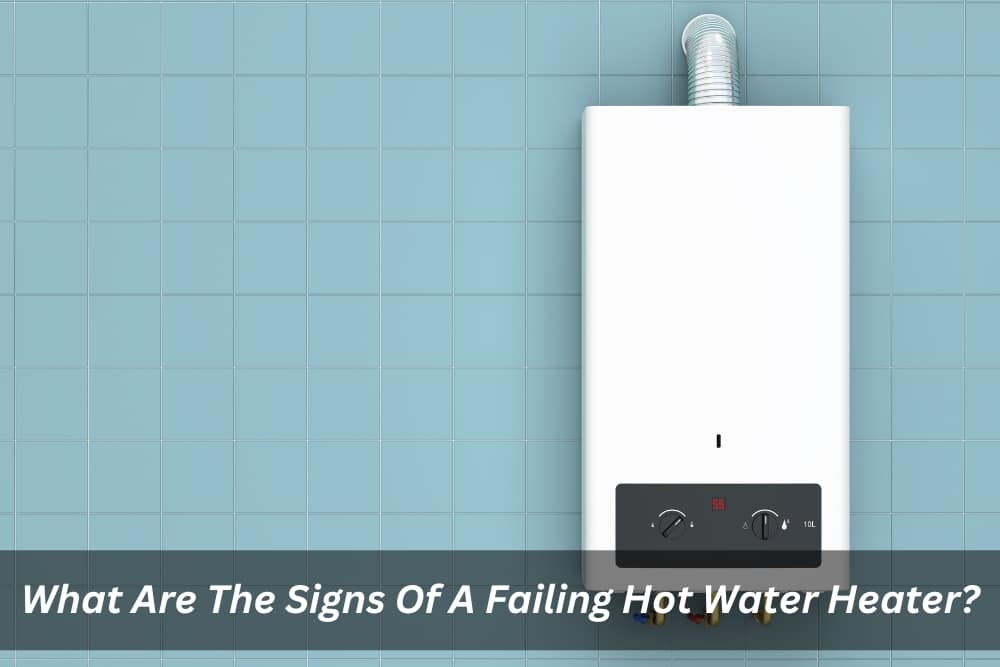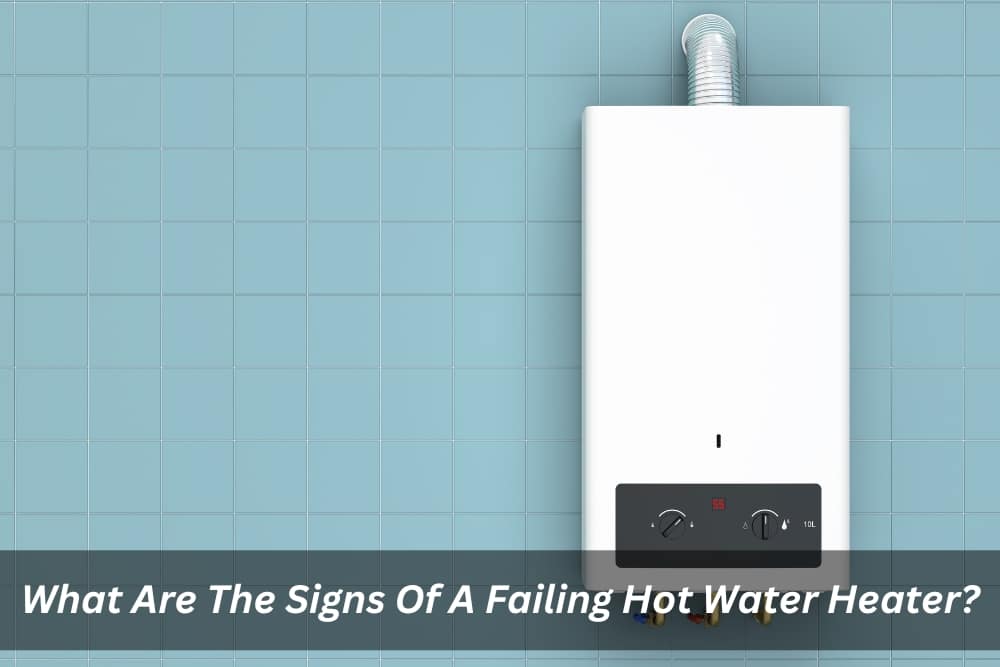
When experiencing a failing hot water heater, it can lead to immense stress and frustration. Typically, hot water heaters are dependable and have a long lifespan. But, it can be challenging to detect when they begin to fail. It’s crucial to recognise the signs of a failing hot water heater to avoid water heater failure and significant problems. In this blog post, we’ll discuss some of the most common signs of failing hot water service. Such as low water pressure, rusty water, and more, and explore hot water repairs to prevent any issues.
What are some common types of hot water heaters?
Hot water heaters come in different types, each with its own advantages and maintenance needs. Some common types include:
Storage Tanks
These are traditional hot water heaters that store a specific volume of hot water in an insulated tank.
Continuous Flow
Also known as tankless water heaters, these systems heat water on demand, eliminating the need for a storage tank.
Electric Hot Water Systems
These heaters use electric resistance elements to heat water, making them suitable for areas without natural gas supply.
Heat Pump Hot Water Systems:
By transferring heat from the surrounding air or ground, these systems provide energy-efficient hot water heating.
Solar Hot Water Systems:
These systems utilise solar panels on metal roofs to capture and convert sunlight into heat energy, which is then used to heat water.
What are the indicators that suggest a hot water heater is malfunctioning?
- Decreased Hot Water Supply: If you notice a significant reduction in the amount of hot water available, it could indicate a failing hot water heater. This can be caused by a malfunctioning heating element, sediment buildup, or other internal issues.
- Leaking Water Heaters: Water pooling around your hot water heater or visible signs of leakage suggests a problem with the tank or connections. Leaks should be addressed promptly to prevent further damage.
- Rusty or Discoloured Water: Rusty or discoloured water coming out of your hot water taps can indicate corrosion or deterioration inside the water heater tank. This could be a sign of an impending failure.
- Strange Noises: Unusual noises such as banging, popping, or rumbling sounds coming from the hot water heater might be an indication.
- Fluctuating Water Temperatures: If your hot water temperature varies unexpectedly, it could be a sign of a failing thermostat or an issue with the heating element.
- High Energy Bills: A sudden increase in energy bills without any significant change in hot water usage can indicate reduced efficiency and a failing hot water heater.
- Sediment Buildup: Sediments, such as minerals and debris, can accumulate at the bottom of the hot water heater tank over time. This can lead to reduced heating efficiency and potential damage to the tank.
- Electric Hot Water Systems: For electric hot water systems, a sign of failure could be a lack of hot water or insufficient heating. It is caused by a faulty heating element or thermostat.
- Heat Pump Hot Water Systems: Heat pump hot water systems may show signs of failure through reduced heating capacity, abnormal noises, or inadequate hot water supply.
- Solar Hot Water Systems: Solar hot water systems might exhibit signs of failure when there is a lack of hot water during periods of minimal sunlight or issues with the solar panels or heat exchanger.
- Tankless Water Heaters: Tankless water heaters can fail if they cannot keep up with the demand for hot water. It will result in inconsistent water temperatures or a complete lack of hot water.
What can you do to prevent failing hot water heater?
Regular maintenance can extend the lifespan of your hot water heater and help prevent unexpected failures. Here are some essential maintenance tasks:
- Flushing the Tank: Regularly flushing the tank helps remove sediment buildup and ensures efficient operation.
- Checking the Anode Rod: The anode rod protects the tank from corrosion. Inspecting and replacing it when necessary can prevent tank failure.
- Inspecting Pressure Relief Valve: The pressure relief valve ensures the tank doesn’t over pressurize. Regularly checking and testing it is crucial for safety.
- Insulating Hot Water Pipes: Insulating the hot water pipes helps prevent heat loss during distribution, improving energy efficiency.
Conclusion
All in all, recognising the signs of a failing hot water heater is vital for timely repairs or replacement. By paying attention to decreased hot water supply, leaking water heaters, rusty or discoloured water, strange noises, fluctuating water temperatures, high energy bills, sediment buildup, and other warning signs, you can address issues before they escalate. Additionally, understanding the different types of hot water heaters and performing regular maintenance tasks can ensure optimal performance and extend the lifespan of your hot water heater.
If you’re experiencing any signs of a failing hot water heater, don’t wait until it’s too late to call for help. Contact Emergency Plumbers today to get your hot water heater inspected and repaired before it turns into a costly and inconvenient disaster. Our team of certified plumbers is available 24/7 to help you with your emergency hot water heater repair.







Comments are closed